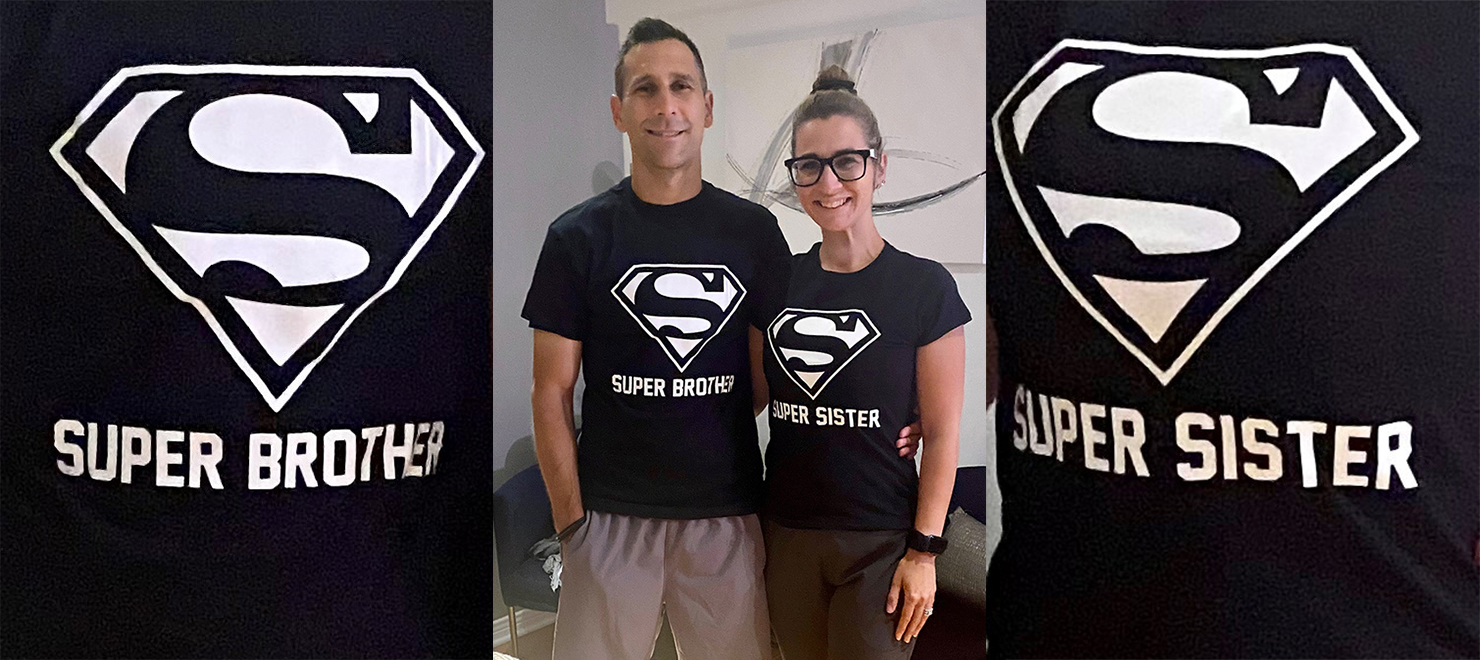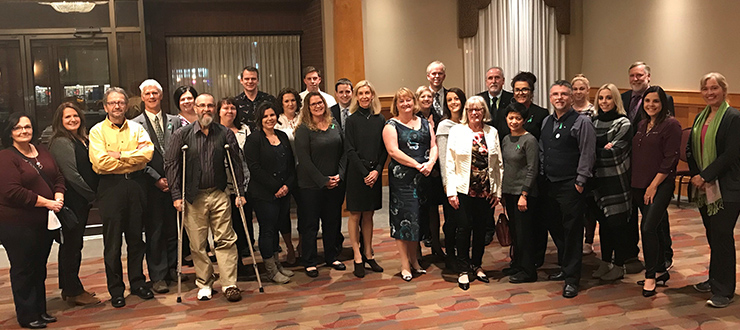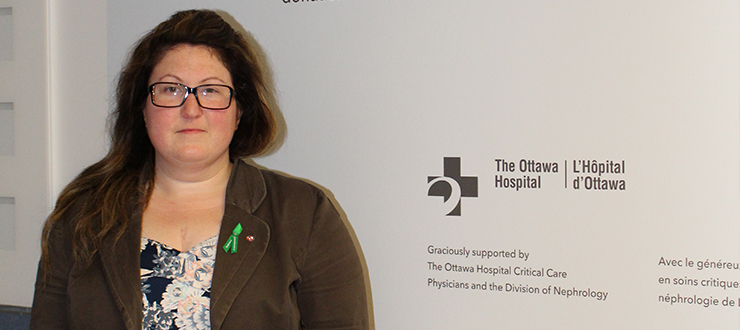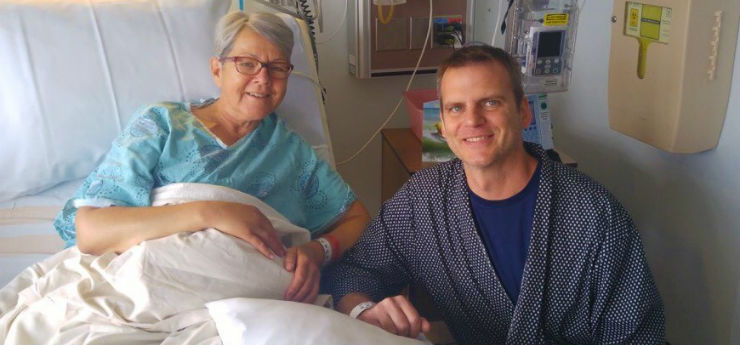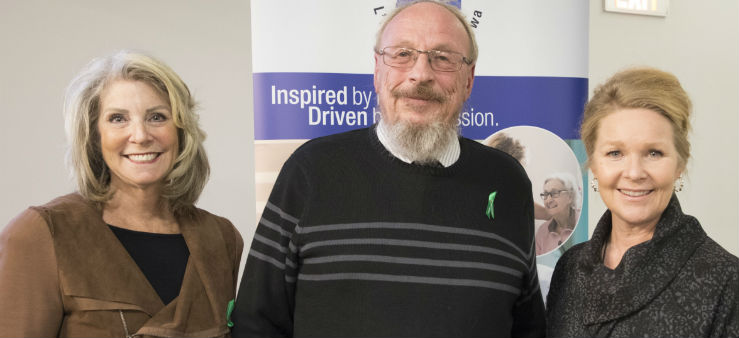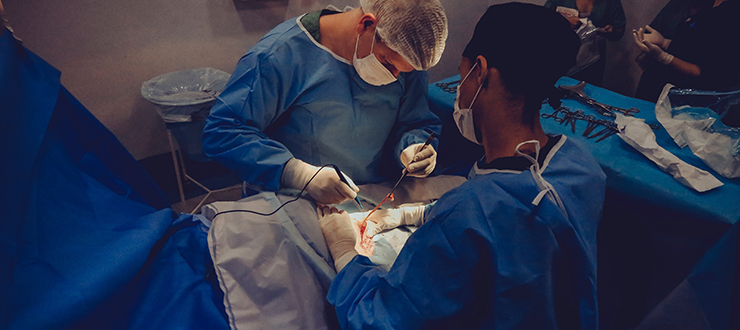
Have you ever wondered how to become an organ donor? Or how to have that conversation with your family or friends? We spoke with experts Mary Robertson and Danny Sutton-Long, Organ and Tissue Donation Coordinators for The Ottawa Hospital and Trillium Gift of Life Network (TGLN) about the most common organ donation questions they receive. Here are their answers.
This article is mainly about organ and tissue donation that happens at the end of life. While it can be a difficult thing to think and talk about, it’s important to consider and share your wishes with your loved ones so that they know what you want. Living organ donation is another option to consider
Both organs and tissues can be donated.
One organ donor can save up to eight lives and enhance the lives of 75 others through tissue donation. Learn more at BeADonor.ca.
How can I become an organ donor?
Anyone can register to become an organ donor by visiting BeADonor.ca and following the registration process.
The organ donation process happens when someone admitted to a critical area like the Intensive Care Unit (ICU), needs to be on a ventilator, has an injury or illness from which they can not recover, and is determined by the care team to be at the end of their life. If the person has registered to be an organ donor a TGLN coordinator will ask the person’s family to reaffirm that they consent to their loved one donating their organ(s). The care team will then begin the organ donation process, where they determine if the person is medically suited for donation and is a suitable match for someone on the waitlist.
What is the difference between organ and tissue donation?
Organ donation is when an organ (e.g., heart, lung, kidney) is removed from one person and transplanted into another person. Tissue donation is when tissues in the body (e.g., skin, corneas, bone) are removed from one person and transplanted into another person.
Tissue donation differs from organ donation in several ways. First, there is no waiting list for most tissue transplants; the tissues are available when someone needs them. Second, while donated organs have to be transplanted within hours, tissue donations can be preserved for up to five years before being transplanted.
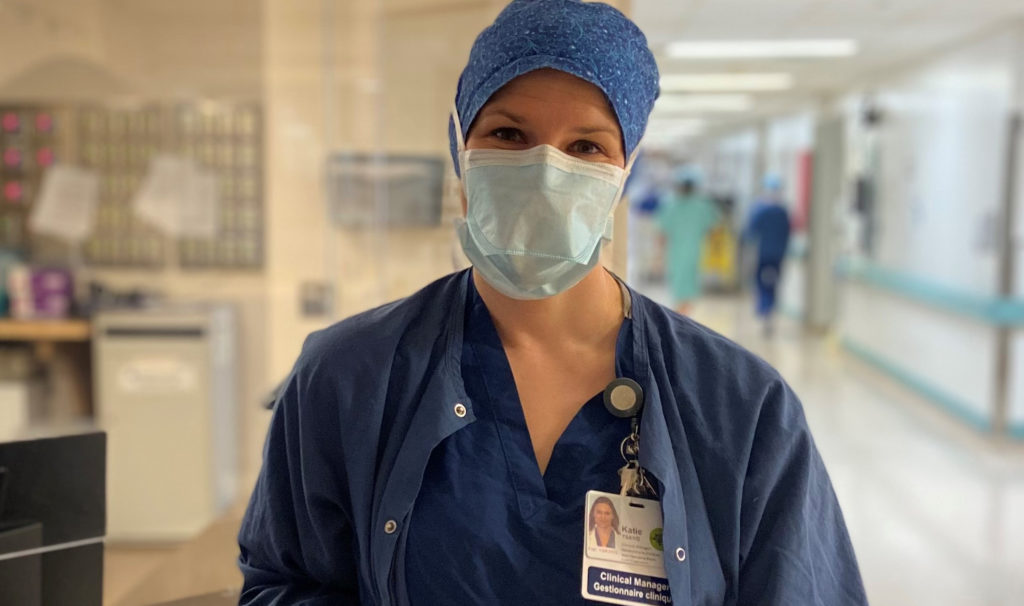
Katie Tsang, Clinical Manager of the Operating Room at The Ottawa Hospital, was honoured by TGLN as a hidden hero for her work in organ donation.
Can I be a donor if I have an illness?
Yes, all potential donors are assessed for medical suitability, which includes a review of their health history as well as serological testing (a blood test that looks for antibodies in the blood). It is best not to rule yourself out because there is always potential to save or enhance the lives of others through organ and tissue donation.
What organs and tissues can be donated?
There are many organs and tissues that can be donated, including the heart, lungs, kidneys, liver, pancreas, pancreas islets (groups of cells in your pancreas), intestines, eyes, bone, skin, and heart valves.
Is there an age limit to being an organ or tissue donor?
No. Age alone does not disqualify you from becoming a donor. There is always potential to be a donor; age should not prevent you from registering.
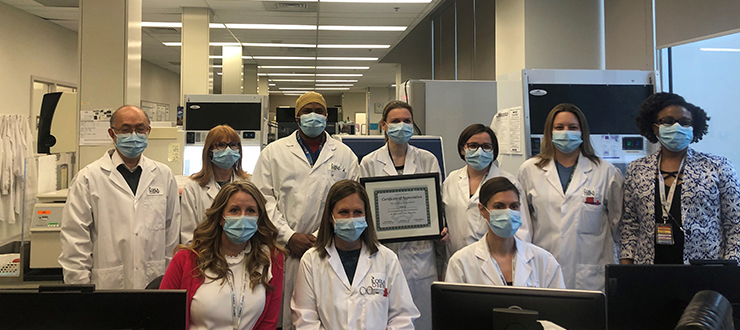
Many teams are involved in organ donation, but they are not often recognized. The Eastern Ontario Regional Laboratory Association was among those honoured as hidden heroes this year.
Should I tell someone if I want to be an organ donor? Why?
It is always good to share your decision to be a donor with your loved ones. When you share your decision, it relieves your loved ones from having to decide for you when you can no longer speak for yourself.
Please remember to register your consent to donate, even if you signed a donor card, to ensure that your consent is recorded with the Ontario government.
When needed, the Trillium Gift of Life Network will use this record to confirm your consent. They will also reaffirm your consent with your family. In almost all cases, families honour and respect their loved ones’ donation decision if they have evidence that it’s what they wanted.
Registering as a donor is the only secure and guaranteed way to make your decision known.
What if my family or friends do not want me to register to be an organ donor?
The choice is yours to make. Discuss with your family or friends why you want to donate at the end of your life. If you or your family and friends have questions about organ and tissue donation, go to the TGLN website or call the toll-free number (1-800-263-2833) fand they will be able to answer your questions.
Why is organ donation important?
One organ donor can save up to eight lives and enhance the lives of 75 others through tissue donation.
Currently in Ontario, there are almost 1,600 people waiting for a life-saving organ transplant, and every three days someone will die while waiting.
More than 90 percent of Ontarians are in favour of organ donation; however, only one in three (35 percent) have registered their consent to donate.
In Ontario (2020):
- 314 deceased donors gave the gift of life
- 1,135 organ transplants were performed
- 1,709 tissue donors enhanced the lives of thousands
Can I be an organ donor if I receive Medical Assistance in Dying?
Saving lives through organ and/or tissue donation is possible for those who choose to receive Medical Assistance in Dying (MAiD). Your suitability to be a donor will be determined based on your medical status, diagnosis and history.
Once you have expressed your interest in donation, Trillium Gift of Life Network (TGLN) will work with you and your doctor or nurse practitioner to support your wishes and determine how they can be met. TGLN will also be able to advise you on any possible additional testing that may be required in order to be a donor, as well as other considerations that may impact your plan for assisted dying.
It is important that you make your decision to donate known to your family and your doctor or nurse practitioner as part of your process so that TGLN can be contacted on your behalf.
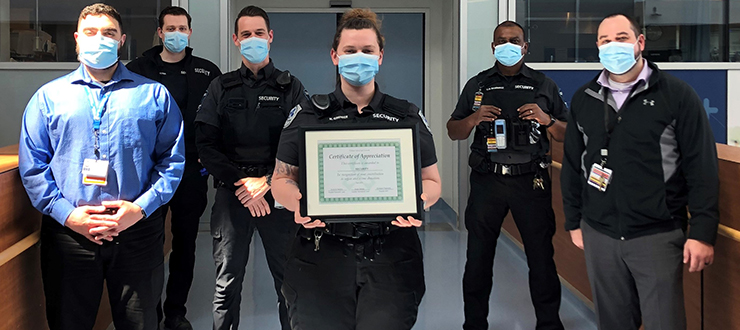
The Ottawa Hospital’s Protective Services team plays an integral role in ensuring that organ donation can occur. They were honoured as a hidden hero this year.
What about living organ donation?
Living donation occurs when a living person donates an organ or part of an organ for transplant to another person in need.
It is one of the most important sources of organs for transplantation. It accounted for 255 transplants in Ontario in 2012 and represents a significant portion of the increase in organ donation over the past ten years. However, the availability of organs from living donors does not meet the crucial need of around 1,600 Ontarians on transplant waiting lists.
This is why it is critically important to encourage colleagues, friends and family to consider registering their consent to be organ and tissue donors at the end of their life.
Living donors are most often family members or close friends of the recipient. Other types of living donation are available and include anonymous donation, list exchange and paired exchange.
You can learn more about living organ donation on the Trillium Gift of Life Network website.
Organ and tissue donation is one way that you can help save lives. Join us as we aim to encourage at least 100 people to register their consent! Register your consent for organ and tissue donation and talk to your family about your wishes.

Support patient care and research at
The Ottawa Hospital
You might also like…
Angèle crushes triathlons and myths about living kidney donors
There’s no shortage of myths about living kidney donation. You may have heard that donors should no longer participate in sports or try to get pregnant. Well, meet Angèle. She’s a triathlete, a mother and a living kidney donor who gave her father a new life 13 years ago.
Becoming a living kidney donor has never been easier: Trina and Antonio’s story
Kidney donors like Trina usually face many months of tests, but a new program at The Ottawa Hospital allowed her to complete nearly all of them in just one day. Trina shares her experience as a living donor and how this new program made it easier to give her brother the gift of life.
Living organ donors honoured in ceremony
The Ottawa Hospital and the Trillium Gift of Life Network honoured 28 living organ donors at a ceremony on Oct. 30, 2018. Living donors and recipients shared their touching stories about how organ donation has changed their lives.
Thank you for the second chance: Honouring those who gave the gift of life
When Denise Schaerer feels a thumping in her chest, she doesn’t just feel her own heartbeat – she feels someone else’s as well. More than 300 patient family members gathered on April 25 at the General and Civic campuses to honour someone they loved, who had consented to organ donation.
“Will you donate your kidney?”: Hospital supports patients seeking living kidney donors
How would you go about asking family, friends or acquaintances to donate a kidney? It’s an enormous request, and it’s not always easy. “I thought about it a lot – how I would approach somebody. You have a lot of time to think about it while on dialysis.”
Trillium Gift of Life Network honoured hospital with two organ donation awards
When Brenda Ringlet passed away suddenly in 2016, her family was in shock, but found great comfort in knowing she helped save many lives through organ donation. Trillium Gift of Life Network recognized The Ottawa Hospital with two awards for its efforts in ensuring that patient wishes are granted.


 To reset, hold the Ctrl key, then press 0.
To reset, hold the Ctrl key, then press 0.

